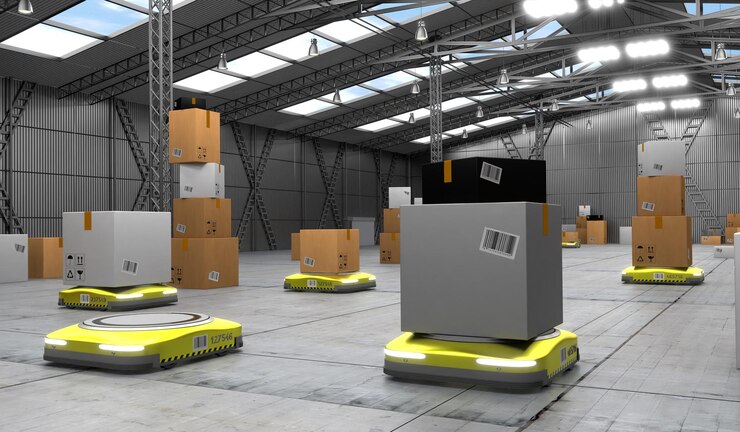Hybrid Warehouse

A Hybrid Warehouse is a flexible and versatile storage solution that combines elements of different types of warehouse systems, typically integrating both traditional and automated processes. This type of warehouse can incorporate a mix of manual storage methods, such as pallet racking and shelving, alongside automated solutions like conveyor systems, automated guided vehicles (AGVs), or robotic systems. The goal of a hybrid warehouse is to offer the best of both worlds—human labor for tasks requiring flexibility and automation for high-volume, repetitive tasks—thereby optimizing both cost and efficiency.
Key Features:
- Combination of Manual and Automated Systems: Hybrid warehouses integrate traditional manual processes (such as forklift operations or manual picking) with automation technologies (such as robots, conveyors, or automated storage and retrieval systems). This allows for a balance of flexibility and efficiency.
- Scalability: Hybrid systems can easily scale up or down depending on the business needs. For example, as a business grows, it can integrate more automation technologies without losing the functionality of manual systems.
- Flexibility: Hybrid warehouses are adaptable, making them suitable for a variety of industries and operations, from e-commerce to manufacturing. They can handle both high-volume, repetitive tasks and low-volume, complex tasks.
- Technology Integration: Hybrid systems often leverage warehouse management systems (WMS), real-time data collection, sensors, and IoT devices to streamline operations and provide better control over inventory, order fulfillment, and warehouse performance.
Ideal Use Cases:
- E-commerce Fulfillment: E-commerce companies can benefit from a hybrid warehouse by combining automation for high-volume order picking and manual systems for complex or specialized orders that may require human intervention.
- Manufacturing Warehouses: Hybrid warehouses are ideal for environments where a mix of raw materials and finished products need to be stored and processed, allowing for both automated handling of bulk goods and manual handling for smaller or more specialized items.
- Retail Distribution Centers: In retail, hybrid warehouses can efficiently manage a large variety of products, from bulk goods requiring automated storage to smaller, more customized items needing manual intervention.
- Cold Storage: Hybrid warehouses can also be used in cold storage facilities where automation can handle certain types of inventory, but manual intervention is required for sensitive goods.
Benefits:
- Improved Efficiency: Automation streamlines repetitive tasks, such as picking, sorting, or packing, which improves overall speed and accuracy. Manual processes can focus on tasks requiring human decision-making or more detailed handling.
- Cost-Effectiveness: Hybrid warehouses allow businesses to gradually integrate automation technologies, reducing initial capital investments compared to fully automated warehouses, while still benefiting from increased operational efficiency.
- Adaptability: The hybrid approach allows for flexibility in adapting to changing market demands, where automated systems can handle peak periods, and manual labor can be utilized for more complex operations.
- Better Inventory Management: Automation improves the accuracy and speed of inventory tracking, and integrating WMS and other technologies helps optimize stock levels, reduce errors, and improve replenishment processes.
Limitations:
- Complexity in Management: Managing a hybrid warehouse requires balancing human labor with automated systems, which may involve more sophisticated processes for coordination and integration of technology.
- High Initial Setup Costs: While hybrid warehouses can be cost-effective in the long run, integrating automation systems and technology may involve high initial investment, especially when upgrading from a fully manual system.
- Dependence on Technology: Relying on automated systems for certain tasks means that warehouse operations can face disruptions if technology malfunctions, requiring regular maintenance and updates.